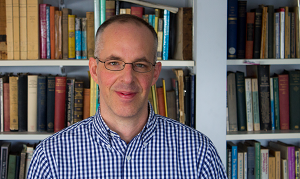Phenomenal Consciousness, Intentionality, and Knowledge
CFS Lecture in Phenomenology by Walter Hopp, Department of Philosophy, Boston University, USA.

Abstract:
Intentionality and phenomenal character are widely recognized to be the two most notable features of conscious experiences. According to separatism, these two features can come apart. According to inseparatism, the phenomenal character of an experience determines its intentionality, and the intentionality of an experience determines its phenomenal character (Graham, Horgan, and Tienson). I will present a qualified Husserlian defense of inseparatism by exploring how both intentionality and phenomenality are related to knowledge and epistemic justification. In the first part, I will argue that no theory of intentionality is complete without a theory of successful objectifying intentionality or knowledge. In the second, I will argue that because all foundational knowledge or “fulfilment” (Husserl) is essentially phenomenally conscious, no theory of knowledge is complete without an account of phenomenal consciousness. Finally, I will argue that no account of phenomenal character is complete without an account of intentionality, since the phenomenal character of an act of fulfilment is partially determined by the manifestation “in the flesh” of that object’s properties.
Bio:
Walter Hopp received his PhD from the University of Southern California in 2005 and is presently an Associate Professor of Philosophy at Boston University. He is the author of Perception and Knowledge: A Phenomenological Account (Cambridge University Press, 2011) and several articles on topics related to phenomenology, the philosophy of mind, the philosophy of perception, and epistemology.
Find more on his homepage: https://www.bu.edu/philo/profiles/walter-hopp/
